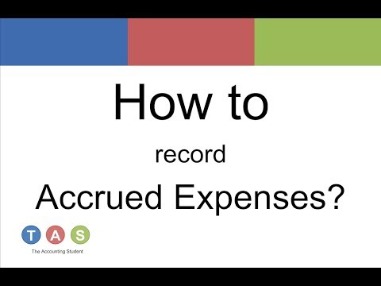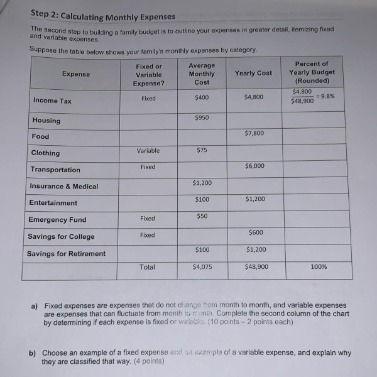Content
- What Are The Three Types Of Business Expenses?
- Whats The Difference Between Fixed And Variable Expenses?
- Income Statement Reporting
- Other Costs Other Expenses: Definition, Examples & Formula
- Business Expenses Explained
- What Are The Three Types Of Expenses?
- Other Costs When Buying A Home With Sample Calculator
You’ll need to keep records such as mileage incurred, maintenance costs and the purpose of each trip. Make sure this is separate from your personal checking account and only use it for business expenses. And you may be eligible for business credit or debit cards that come with perks like cash back or no-interest financing for three months. First and foremost, you need to split up your personal and business expenses. In addition to having a separate business bank account, you need to separate your personal and business expenses. And, if you have an expense for something that is used partly for business and personal reasons, you can divide and deduct the business portion.
Are expenses liabilities?
Expenses and liabilities should not be confused with each other. One is listed on a company’s balance sheet, and the other is listed on the company’s income statement. Expenses are the costs of a company’s operation, while liabilities are the obligations and debts a company owes.Business debts such as loans and lines of credit are also considered company expenses.The IRS allows tax deductions for eligible business expenses. The costs of purchasing company assets, such as property and equipment are considered “capital” business expenses, which enhance the ability to service clients. Examples of business assets include buildings, machinery, furniture and franchise rights. The IRS does not allow deductions for purchasing business assets, but does allow business owners to recover the cost of business assets through depreciation. By depreciating the value of company assets and deducting a part of the cost each year, business owners may recover costs over time.
What Are The Three Types Of Business Expenses?
When the processing fee is incurred but the good is not yet delivered, debit and credit . Now that we’ve looked at a detailed example of other costs in “normal life,” let’s look at some nuances surrounding other costs in business. Accounting types use the term “cost” to describe several different instances in business situations. You can also consider an expense as money you spend to generate revenue. If not daily, try to set aside the same time each week to scan and organize receipts.
What are the common expenses a business incur?
An expense is the cost of operations that a company incurs to generate revenue. As the popular saying goes, “it costs money to make money.” Common expenses include payments to suppliers, employee wages, factory leases, and equipment depreciation.Our mission is to provide readers with accurate and unbiased information, and we have editorial standards in place to ensure that happens. Our editors and reporters thoroughly fact-check editorial content to ensure the information you’re reading is accurate. We maintain a firewall between our advertisers and our editorial team. Our editorial team does not receive direct compensation from our advertisers. Operating expenses consist of the cost of sales, fulfillment, marketing, technology and content, general and administrative, and others.
Whats The Difference Between Fixed And Variable Expenses?
Capital expenses are not tax deductible as business expenses but may be used for depreciation or amortization. The accounting treatment for other expenses is simple as far as journal entries go. Since these are usually costs wholly incurred within the period, the entries are debit and credit .

For example, set up a separate home office space for the home office deduction. By making it part of your regular workflow, you’re less likely to miss expenses that can reduce your overall tax burden. And by keeping an eye on your expenses and revenue through your income statement, you’re able to better monitor the financial health of your company. Keep records of costs like transportation, lodging and some of the meals (usually 50% of the cost.) Keep your receipts for these expenses for at least three years, as long as the IRS can audit you. Business expenses can be written off and reduce your overall tax liability. Start separating your business and personal expenses right away.
Income Statement Reporting
Business expenses need to be considered ordinary and necessary for them to be tax-deductible. Bankrate is compensated in exchange for featured placement of sponsored products and services, or your clicking on links posted on this website. This compensation may impact how, where and in what order products appear. Bankrate.com does not include all companies or all available products. Once your written budget is complete you need to track your actual expenses each month and compare to your budgeted expenses. This is a great way to find out if you really spend money where you think you do. When you discover discrepancies between your budgeted expenses and your actual expenses, you either need to adjust your budget or spending.A transaction is a finalized agreement between a buyer and a seller, but it can get a bit more complicated from an accounting perspective.
Other Costs Other Expenses: Definition, Examples & Formula
Business professionals often buy professional liability insurance in case their services harm a client. Commercial auto insurance is another expense if the company owns a fleet of vehicles or if a personal vehicle is used for business purposes. Creating a monthly budget is one of the most basic steps you can take to manage your money and make sure that you stay on track to meet your financial goals. To create a budget, though, you need to have an idea of what your monthly expenses are. You also have to make sure that your expenses don’t exceed your monthly income so that you can pay all your bills — and save some money, too. Business owners are not allowed to claim their personal, non-business expenses as business deductions. They also cannot claim lobbying expenses, penalties, and fines.
- Get up and running with free payroll setup, and enjoy free expert support.
- Variable expenses vary from month to month and are typically a company’s largest expense.
- These illustrative examples showcase the imbalance caused by prioritizing one set of needs at the expense of the other.
- Daniel Liberto is a journalist with over 10 years of experience working with publications such as the Financial Times, The Independent, and Investors Chronicle.
- When Corey places his order, he debits supplies for $100 and credits cash for $100.
- You can generally think of the cost of buying a home as the sum of the purchase price, interest paid on a loan to fund the purchase, other initial costs, and other costs.
- And documentation of writing off bad debt should be kept for 7 years.
Consider double-entry bookkeeping to catch errors and prevent fraud. Also note that capital expenditures, while deductible, are typically written off over several years through an accounting process known as depreciation.These expenses will be subtracted from business revenue to show a company’s net profit or loss and taxable income. Business expenses are costs you incur while operating your business. Types of business expenses include everything from storefront rent to payroll costs for small business. Your expenses play a role in whether you’ll have a net profit or loss during a time period. There are both fixed (costs that don’t change) and variable business expenses. Capitalizing an expense refers to an expensive asset that a business invests in to generate revenue, but is also one that will depreciate over a number of years .All the business assets are combined for the purpose of the balance sheet. At the end of the year, expense accounts need to be closed, or zeroed out. Expense accounts need to be closed because they are temporary, meaning that they pertain only to a given accounting period and won’t carry over into the next one. When expense accounts are closed, they close to another temporary account, known as Income Summary.While most costs of doing business can be expensed or written off against business income the year they are incurred, capital expenses must be capitalized or written off slowly over time. Companies often maintain several types of insurance policies. An organization buys insurance to protect against liability exposure, as well as insurance to pay for damage to business property.
Business Expenses Explained
The most common tax-deductible expenses include depreciation and amortization, rent, salaries, benefits, and wages, marketing, advertising, and promotion. For example, if a business owner schedules a carpet cleaner to clean the carpets in the office, a company using cash basis records the expense when it pays the invoice. Under the accrual method, the business accountant would record the carpet cleaning expense when the company receives the service. Expenses are generally recorded on an accrual basis, ensuring that they match up with the revenues reported in accounting periods. Other costs vs other expenses are extensions of this idea. EXPENSES are related to business expenditures over time, and they are shown on the business net income statement.

But if you don’t build this discretionary spending into your budget, you can easily start to overspend here. If you rent, you’re likely not responsible for maintenance, repairs or property tax so you wouldn’t need to include a separate amount for that. You’ll also have to pay for home maintenance, such as plumbing fixes, landscaping, gutter cleanings and an occasional fresh coat of paint. You’ll need to estimate your maintenance costs to put them in a budget since all of those are likely not fixed recurring amounts each month.It’s also crucial to understand what business expenses are and what you can deduct so you’re not paying more taxes than necessary. Most, but not all, expenses are deductible from a company’s income to arrive at its taxable income.The financial statements are key to both financial modeling and accounting. Cash cost is a term used in cash basis accounting that refers to the recognition of costs as they are paid in cash. However, if expenses are cut too much it could also have a detrimental effect. For example, paying less on advertising reduces costs but also lowers the company’s visibility and ability to reach out to potential customers.Save time and ensure you have the most up-to-date information with an accounting platform. You can see charts and dashboards of your financial information, as well as generate important reports, like the income statement. Not only will receipts and other documentation of your business expenses come in handy if you’re ever audited, the IRS requires some records be kept for up to 7 years. Things like receipts, tax returns and employment records need to be kept for 3-4 years. And documentation of writing off bad debt should be kept for 7 years. Consider using business accounting software to track your expenses and go paperless for record keeping. Your housing expenses are likely your single-largest budget item.